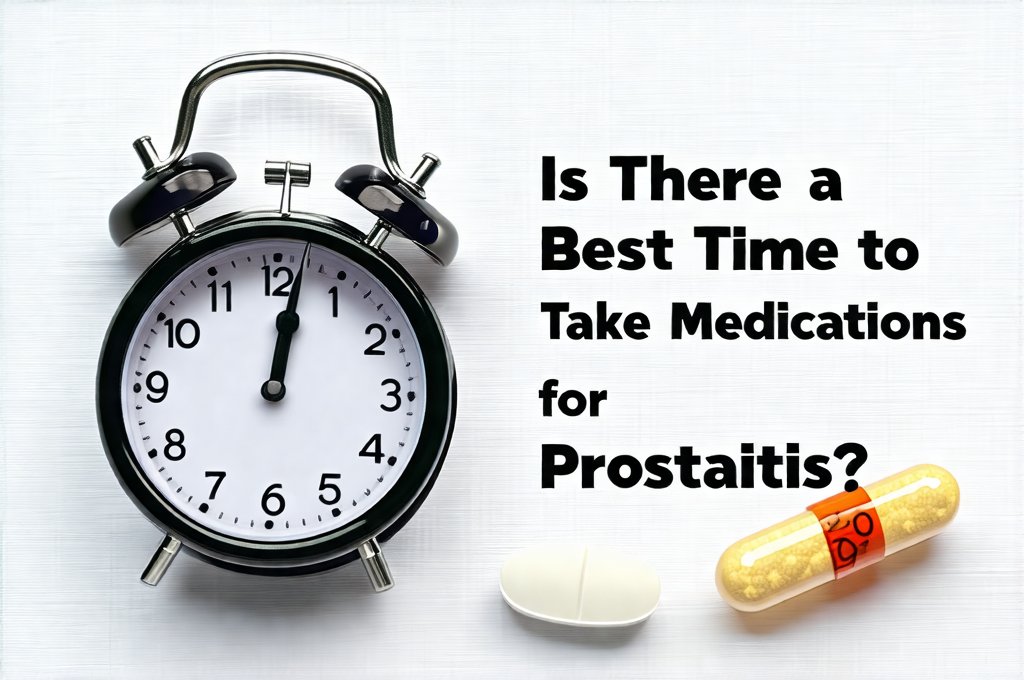Prostatitis, inflammation of the prostate gland, can significantly impact a man’s quality of life, often presenting with painful urination, frequent urges, discomfort in the pelvic region, and sometimes even sexual dysfunction. Managing this condition frequently involves medication – antibiotics for bacterial infections, alpha-blockers to ease urinary symptoms, anti-inflammatory drugs for pain relief, and potentially other therapies depending on the specific type of prostatitis diagnosed. However, beyond which medications are prescribed, there’s a growing question about when those medications should be taken to maximize their effectiveness and minimize potential side effects. Understanding the nuances of drug absorption, metabolism, and the body’s natural rhythms can play a surprisingly important role in optimizing treatment outcomes for prostatitis sufferers.
The timing of medication administration isn’t just an arbitrary detail; it’s deeply rooted in pharmacokinetics – how the body processes a drug. Factors like gastric emptying rate, liver enzyme activity, and hormonal fluctuations all influence how efficiently a drug is absorbed, distributed, metabolized, and excreted. For medications used to treat prostatitis, this becomes even more complex because different drugs target different physiological pathways and have varying durations of action. Furthermore, individual lifestyle factors – diet, stress levels, sleep patterns – can further modify these processes. Therefore, exploring the ideal timing for medication intake isn’t about finding a one-size-fits-all solution but rather tailoring it to the specific drug, the patient’s condition, and their daily routine.
Medication Types & Absorption Considerations
Different classes of medications used in prostatitis treatment exhibit distinct absorption characteristics, making timing crucial. For instance, alpha-blockers like tamsulosin are often prescribed to relax the muscles in the prostate and bladder neck, easing urinary flow. These drugs typically have a relatively short half-life, meaning their effects wear off quickly, requiring consistent blood levels for optimal symptom control. Taking them with food can delay absorption and reduce their effectiveness, hence they’re generally recommended on an empty stomach – often before bed to minimize potential side effects like dizziness. Conversely, nonsteroidal anti-inflammatory drugs (NSAIDs) are often better tolerated when taken with food as this helps protect the stomach lining from irritation.
Antibiotics used for bacterial prostatitis also benefit from timing considerations. Some antibiotics require consistent blood levels to effectively combat infection, while others have a longer duration of action allowing for less frequent dosing. The absorption of certain antibiotics can be significantly affected by interactions with other medications or food components. For example, tetracycline shouldn’t be taken with dairy products as calcium binds to the antibiotic, reducing its absorption. Finally, medications used for chronic pelvic pain syndrome often aim to reduce inflammation and nerve sensitivity; consistent timing is critical for maintaining therapeutic levels and achieving sustained relief.
Optimizing Timing Based on Prostatitis Type
The type of prostatitis significantly influences medication choices and, consequently, optimal timing strategies. – Acute bacterial prostatitis typically requires immediate antibiotic treatment, prioritizing rapid absorption and high drug concentrations. This often means taking antibiotics as prescribed, regardless of food intake (unless specifically instructed otherwise), to quickly combat the infection. – Chronic bacterial prostatitis necessitates longer-term antibiotic regimens, where consistent blood levels are paramount. Here, timing should consider factors affecting absorption and potential side effects, potentially involving multiple doses throughout the day spaced strategically. – Chronic pelvic pain syndrome (CPPS), which often lacks a clear infectious cause, relies more heavily on symptom management with medications like alpha-blockers, NSAIDs, and pain relievers. In this case, timing should align with peak symptom presentation – for example, taking an alpha-blocker before bed if nighttime urinary frequency is a major concern. Understanding the best time of day to take bladder supplements can also be helpful in managing symptoms.
The Role of Circadian Rhythms & Chronotherapy
Emerging research suggests that our body’s natural circadian rhythms—the internal biological clock governing various physiological processes—can influence drug efficacy and tolerability. This concept, known as chronotherapy, involves timing medication administration to coincide with peak function of relevant organs or systems. For example, some studies indicate that anti-inflammatory drugs may be more effective when taken in the evening, coinciding with increased cortisol levels which can dampen inflammation. Similarly, pain medications might be timed strategically based on individual patterns of pain fluctuation throughout the day.
While chronotherapy is still evolving and requires further investigation specifically for prostatitis treatment, it highlights the potential benefits of personalized medication timing. This could involve tracking symptom fluctuations, identifying peak pain times, or even adjusting dosages based on time of day to maximize effectiveness and minimize side effects. It’s crucial to remember that any adjustments to medication timing should always be discussed with a healthcare professional. Maintaining kidney health is also important; exploring the best time of day to take kidney supplements can contribute to overall wellbeing.
Practical Tips & Communication with Your Doctor
Ultimately, determining the best time to take medications for prostatitis is a collaborative effort between you and your doctor. Here are some practical tips: – Keep a medication diary: Record when you take each medication, what you ate beforehand, and any side effects experienced. This information can help identify patterns and optimize timing. – Discuss absorption issues: Inform your doctor about any dietary restrictions or other medications you’re taking to avoid potential interactions that could affect drug absorption. – Be specific about symptoms: Clearly communicate the timing of your worst symptoms (pain, urinary frequency, etc.) to help tailor medication schedules accordingly. – Don’t self-adjust dosages: Never change your dosage or schedule without consulting your doctor. – Ask about chronotherapy: Inquire whether a personalized approach based on circadian rhythms might be appropriate for your specific situation. Consider what kind of water is best if you have a sensitive bladder.
Effective management of prostatitis requires more than just taking the right medications; it demands understanding how and when to take them for optimal results. By working closely with your healthcare provider, paying attention to your body’s signals, and embracing a proactive approach to medication timing, you can significantly improve your quality of life and effectively manage this challenging condition.





















